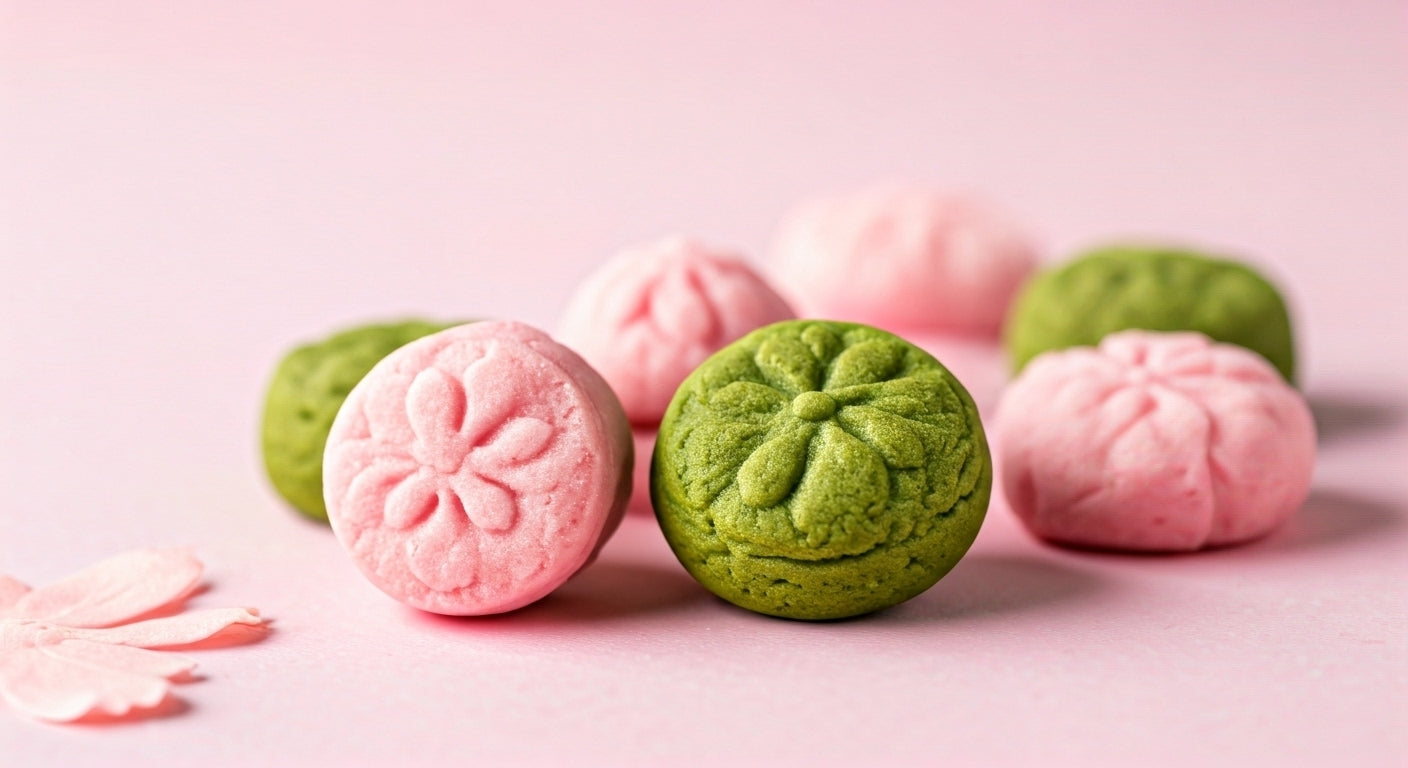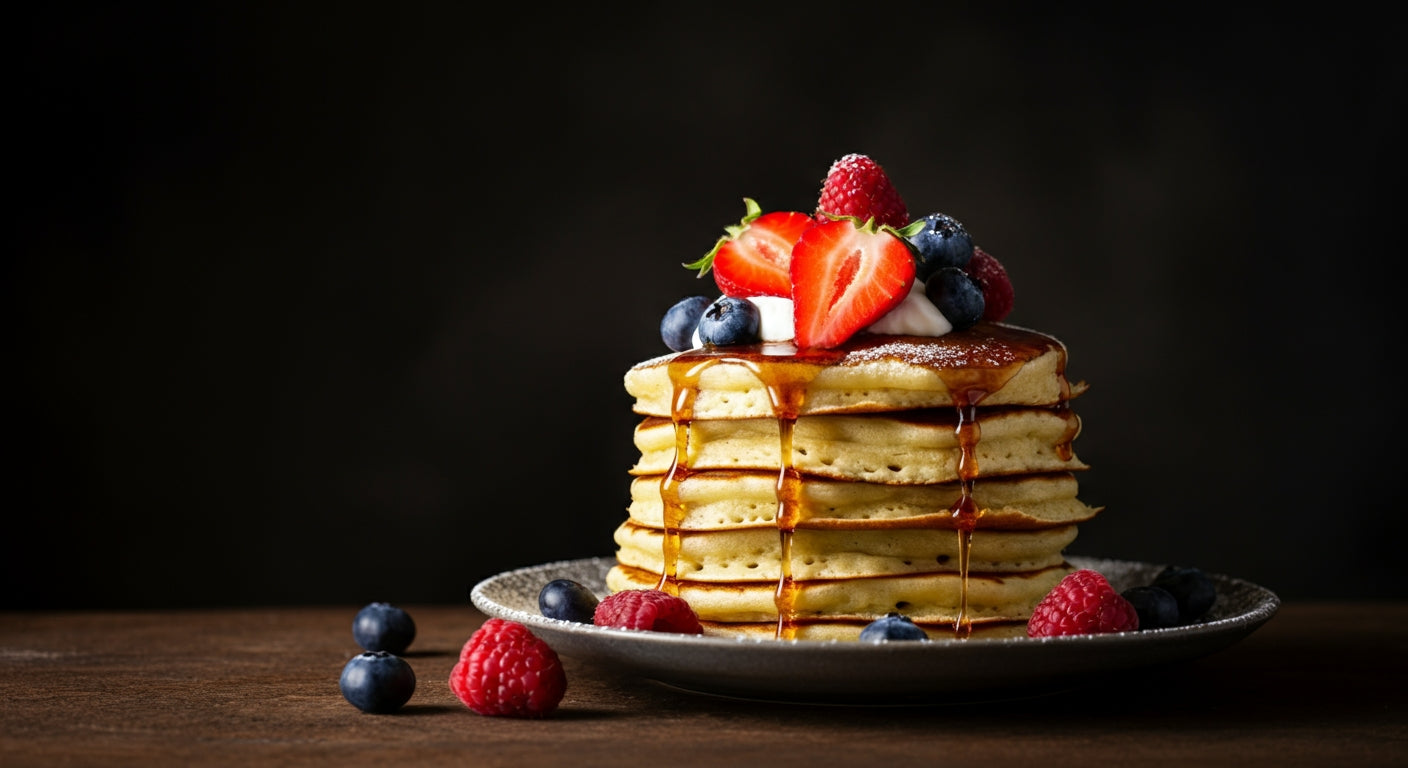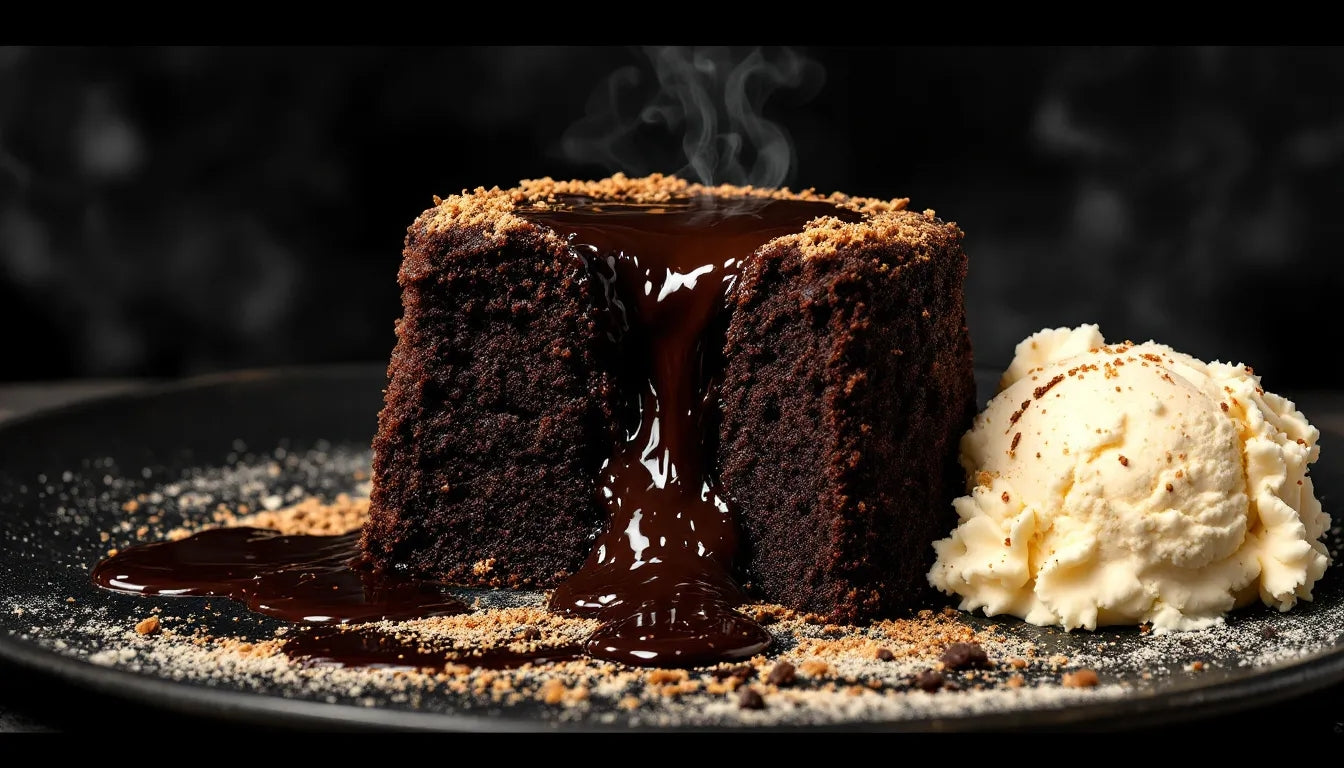
Japanese Cookies: Traditional Flavors Meet Modern Chocolate Innovation
Japanese cookies represent a fascinating fusion of traditional techniques, delicate flavors, and artistic presentation that has captivated dessert lovers worldwide. From the earthy sophistication of matcha shortbread to the sweet nostalgia of melon pan, Japanese confectionery artistry emphasizes harmony between taste, texture, and visual beauty. Modern interpretations now incorporate premium chocolate elements, creating innovative treats that honor tradition while embracing contemporary flavors. Understanding the principles behind Japanese cookie-making opens up endless possibilities for creating elegant, health-conscious treats that satisfy both aesthetic and culinary desires.

Understanding Japanese Cookie Philosophy
Japanese confectionery, known as wagashi and yoshoku-kashi, emphasizes balance, seasonality, and understated elegance that reflects broader Japanese aesthetic principles.
Core Principles of Japanese Baking
Seasonal harmony (seasonality) guides ingredient selection, with spring featuring cherry blossoms, summer highlighting fresh fruits, autumn celebrating sweet potatoes, and winter embracing warming spices.
Texture contrast (shokkan) balances crispy exteriors with tender interiors, creating satisfying mouthfeel that engages multiple senses simultaneously.
Subtle sweetness (amai) avoids overwhelming sugar levels, instead allowing natural ingredient flavors to shine through delicate balance.
Visual beauty (utsukushisa) treats cookies as edible art, emphasizing color harmony, geometric precision, and natural inspiration.
Traditional Japanese Ingredients
Matcha (powdered green tea) provides earthy, slightly bitter notes with vibrant color and antioxidant benefits. Premium matcha from ceremonial-grade sources offers the most complex flavor profiles.
Miso paste adds umami depth and complex saltiness that enhances sweet flavors through contrast.
Kinako (roasted soybean flour) contributes nutty, toasted flavors with protein content and traditional significance.
Kuromitsu (brown sugar syrup) offers caramel-like sweetness with molasses depth that complements other traditional flavors.
Red bean paste (anko) provides natural sweetness with earthy undertones and cultural authenticity.
Classic Japanese Cookie Varieties
Traditional Japanese cookies showcase specific techniques and flavor combinations that have been refined over generations.
Matcha Shortbread (Matcha Sablé)
This buttery, crumbly cookie highlights matcha's complex flavor while maintaining European shortbread techniques:
Essential characteristics:
- Vibrant green color from high-quality matcha
- Tender, melt-in-mouth texture
- Balanced sweetness that doesn't overwhelm matcha's earthiness
- Clean finish with lingering tea notes
Key technique tips:
- Use ceremonial-grade matcha for superior flavor and color
- Sift matcha with flour to prevent lumps
- Chill dough thoroughly for clean cutting
- Bake at low temperature to preserve color
Melon Pan (メロンパン)
Originally a sweet bread that evolved into cookie form, melon pan features crispy cookie shells over soft interiors:
Traditional preparation:
- Sweet bread dough base provides soft texture
- Cookie dough exterior creates textural contrast
- Crosshatch scoring mimics melon appearance
- Light sweetness appeals to all ages
Modern variations:
- Chocolate-filled centers using premium dark chocolate
- Matcha-flavored cookie shells
- Seasonal fruit flavoring additions
Kinako Cookies
These nutty, protein-rich treats showcase roasted soybean flour's unique characteristics:
Flavor profile:
- Toasted, nutty sweetness
- Slightly grainy texture from kinako flour
- Subtle earthiness that pairs well with tea
- Natural protein content for sustained energy

Modern Japanese-Inspired Cookies with Chocolate
Contemporary interpretations blend traditional Japanese flavors with premium chocolate elements, creating sophisticated treats that appeal to modern palates.
Matcha White Chocolate Cookies
Matcha chocolate combinations create harmony between bitter tea notes and sweet creaminess:
Ingredient innovations:
- Premium ceremonial matcha for authentic flavor
- Organic coconut sugar for refined sweetness
- Cacao butter for rich texture without dairy
- Vanilla bean for aromatic complexity
Technique highlights:
- Bloom matcha in warm liquid to intensify flavor
- Fold white chocolate chunks for textural interest
- Use parchment paper for even baking
- Cool completely before storing to maintain texture
Miso Chocolate Chip Cookies
The umami-sweet combination creates unexpected depth that enhances chocolate's richness:
Flavor development:
- White or red miso paste adds savory complexity
- Premium chocolate chips provide rich contrast
- Sea salt finishing enhances all flavors
- Brown butter adds nutty depth
Black Sesame Chocolate Cookies
Nutty black sesame pairs beautifully with dark chocolate's intensity:
Unique characteristics:
- Black sesame paste creates striking color
- Dark chocolate complements sesame's nuttiness
- Tahini-like texture from sesame oil
- Mineral-rich flavor profile
Azuki (Red Bean) Chocolate Cookies
Traditional sweet red bean paste meets modern chocolate sensibilities:
Cultural fusion elements:
- Homemade or premium azuki paste centers
- Coconut milk chocolate coating
- Traditional anko preparation techniques
- Modern presentation styling
Premium Ingredient Applications
Using high-quality, ethically-sourced ingredients elevates Japanese cookie-making while supporting sustainable practices.
Chocolate Integration Techniques
Chopped chocolate pieces create irregular textures and varying chocolate intensities throughout cookies. Premium chocolate bars chopped by hand offer superior melting and flavor compared to commercial chips.
Melted chocolate drizzles provide elegant finishing touches that enhance visual appeal while adding extra chocolate flavor.
Chocolate ganache fillings sandwich between cookie layers for sophisticated presentations.
Cacao powder dusting adds visual drama and intense chocolate flavor without additional sweetness.
Natural Sweetener Alternatives
Organic coconut sugar provides caramel notes that complement both chocolate and traditional Japanese flavors while offering lower glycemic impact.
Maple syrup adds complexity without overwhelming delicate flavors, particularly effective in matcha applications.
Date paste offers natural sweetness with fiber content and mineral benefits.
Rice malt syrup provides traditional Japanese sweetening with mild flavor impact.
Texture Enhancement Ingredients
Coconut flakes add tropical notes and satisfying texture contrast.
Cacao nibs provide intense chocolate flavor with crunchy texture and antioxidant benefits.
Toasted nuts contribute protein and healthy fats while adding authentic Japanese flavors when using traditional varieties.

Traditional Japanese Cookie Recipes with Modern Twists
These recipes honor traditional techniques while incorporating premium chocolate elements for contemporary appeal.
Matcha Shortbread with Dark Chocolate Drizzle
Ingredients:
- 2 cups all-purpose flour
- 3 tablespoons ceremonial-grade matcha powder
- ½ cup organic coconut sugar
- 1 cup unsalted butter (or cacao butter for vegan version)
- ¼ teaspoon sea salt
- 2 oz dark chocolate for drizzling
Method:
- Sift flour and matcha together to eliminate lumps
- Cream butter and coconut sugar until light and fluffy
- Incorporate dry ingredients until just combined
- Shape into log, wrap, and chill 2 hours
- Slice into rounds and bake at 325°F for 12-15 minutes
- Cool completely before drizzling with melted chocolate
Miso Chocolate Chip Cookies
Ingredients:
- 2¼ cups all-purpose flour
- 1 teaspoon baking soda
- 1 teaspoon sea salt
- 2 tablespoons white miso paste
- 1 cup softened butter
- ¾ cup coconut sugar
- 2 large eggs
- 2 teaspoons vanilla extract
- 2 cups premium chocolate chips
Method:
- Whisk together flour, baking soda, and salt
- Cream butter, miso paste, and coconut sugar
- Add eggs and vanilla, mixing until combined
- Gradually add dry ingredients
- Fold in chocolate chips
- Bake at 375°F for 9-11 minutes until edges are golden
Black Sesame Chocolate Cookies
Ingredients:
- 1¾ cups all-purpose flour
- ¼ cup black sesame powder
- ½ cup cacao powder
- ½ teaspoon baking soda
- ½ teaspoon salt
- ⅔ cup coconut sugar
- ½ cup coconut oil, melted
- 2 large eggs
- 1 teaspoon vanilla extract
Method:
- Combine all dry ingredients in large bowl
- Whisk together wet ingredients separately
- Combine wet and dry ingredients until just mixed
- Chill dough 30 minutes for easier handling
- Shape into balls and bake at 350°F for 10-12 minutes
Health Benefits and Nutritional Considerations
Japanese cookies, particularly when made with premium ingredients, offer various health benefits beyond simple indulgence.
Matcha Health Benefits
Antioxidant powerhouse: Matcha contains catechins, particularly EGCG, which support cellular health and may reduce inflammation.
Sustained energy: L-theanine combined with natural caffeine provides calm alertness without jitters.
Metabolism support: Green tea compounds may support healthy metabolism and weight management.
Mental clarity: Traditional tea ceremony practices emphasize mindfulness and stress reduction.
Premium Chocolate Benefits
Dark chocolate with high cacao content provides flavonoids that support cardiovascular health and cognitive function.
Mood enhancement: Natural compounds in quality chocolate support serotonin production and stress reduction.
Mineral content: Premium chocolate provides magnesium, iron, and other essential minerals.
Natural Sweetener Advantages
Coconut sugar offers lower glycemic impact than refined sugar while providing trace minerals.
Reduced sugar content: Japanese cookie traditions emphasize subtle sweetness, naturally reducing overall sugar consumption.
Fiber content: Many traditional ingredients like red bean paste provide fiber for better digestion.
Cultural Significance and Modern Applications
Understanding the cultural context of Japanese cookies enhances appreciation while inspiring creative applications.
Tea Ceremony Connections
Traditional Japanese cookies complement tea ceremony principles of harmony, respect, purity, and tranquility. Modern interpretations can honor these values while embracing contemporary ingredients and techniques.
Seasonal Celebrations
Japanese cookie-making traditionally follows seasonal rhythms, using ingredients at their peak and creating treats that reflect natural cycles. Modern bakers can adapt these principles using local, seasonal ingredients.
Gift-Giving Traditions
Japanese culture emphasizes beautiful presentation and thoughtful gift-giving. Homemade cookies wrapped in elegant packaging continue these traditions while showing personal care and attention.
Mindful Eating Practices
Japanese approach to sweets emphasizes quality over quantity, savoring small portions of exceptional treats rather than consuming large amounts of mediocre desserts.
Frequently Asked Questions About Japanese Cookies
What makes Japanese cookies different from Western cookies?
Japanese cookies typically emphasize subtle sweetness, delicate textures, and seasonal ingredients. They often feature unique flavors like matcha, black sesame, and red bean, with more refined sugar levels than Western varieties. The focus is on balance and harmony rather than intense sweetness.
Where can I find authentic matcha for baking?
Look for ceremonial-grade matcha from reputable Japanese tea companies. Coracao's matcha chocolate uses premium matcha sourced from Japan, demonstrating the quality difference authentic ingredients provide.
Can I make Japanese cookies gluten-free?
Yes! Many Japanese cookies adapt well to gluten-free flours. Use rice flour for traditional texture, or blend almond flour with tapioca starch. Coconut flour also works well in some recipes, adding subtle tropical notes.
How do I prevent matcha cookies from turning brown?
Use low baking temperatures (325°F or lower), store matcha in airtight containers away from light, and sift matcha with flour to ensure even distribution. High-quality matcha retains color better than lower grades.
What's the best way to store Japanese cookies?
Store in airtight containers at room temperature for up to one week. Layer delicate cookies between parchment paper, and keep matcha cookies away from light to preserve color. Some varieties freeze well for longer storage.
Summary: Embracing Japanese Cookie Artistry
Japanese cookies offer a sophisticated approach to baking that emphasizes balance, seasonality, and premium ingredients over excessive sweetness and artificial flavors. Traditional varieties like matcha shortbread and melon pan showcase centuries-old techniques that create unique textures and flavors, while modern interpretations incorporating premium chocolate elements bridge cultural traditions with contemporary tastes. The key principles include using high-quality ingredients, practicing restraint with sweeteners, and focusing on harmonious flavor combinations that complement rather than compete. Whether following traditional recipes or creating innovative fusion varieties, Japanese cookie-making teaches patience, precision, and appreciation for subtle flavors that create lasting satisfaction.
Ready to explore the elegant world of Japanese cookie-making with premium ingredients? Discover Coracao Confections' collection of high-quality baking ingredients including matcha chocolate, organic coconut sugar, premium chocolate products, and cacao powder perfect for creating authentic Japanese-inspired treats. Transform your baking with ethically-sourced, organic ingredients that honor both tradition and modern nutritional awareness.

Claire Bennett
I'm Claire, a chocolate lover and artisan based in a small town where I run a tiny home kitchen dedicated to exploring everything chocolate. From single-origin dark bars to creamy ganache and handmade truffles, I find joy in working with all types of chocolate. I believe chocolate has a story, and I love bringing that story to life through humble, heartfelt creations.



Leave a comment
This site is protected by hCaptcha and the hCaptcha Privacy Policy and Terms of Service apply.